Table of Contents
Key Takeaways
- B-Vitamins and multivitamins are crucial for brain health and neurotransmitter synthesis.
- Acetylcholine’s role in ADHD can be supported with nootropics like ALCAR and CDP-Choline.
- Nootropics like Ashwagandha and Bacopa Monnieri help repair damaged neuroreceptors in ADHD.
- Noopept enhances cognition, memory, and provides neuroprotection.
- Combining specific nootropics with essential vitamins can optimize brain function for managing ADHD symptoms.
Depending on the severity of your ADHD symptoms, you may be able to use nootropics as an alternative to prescription stimulants like Adderall, Ritalin, Vyvanse and their variations.
I experimented for a year by using nootropics in place of the 20 mg of Ritalin I had been using 3-times a day for several years. And for the most part, I was successful in taming my Adult ADD symptoms.
Adult ADD Nootropic Stack
The ADD/ADHD stack I use includes:
- Mind Lab Pro
- Performance Lab® Energy – twice per day
- CDP-Choline – twice per day
- ALCAR – 750 mg 1-time per day
- L-Tyrosine – 500 mg 3-times per day
- Sulbutiamine – 400 mg twice per day
- Aniracetam – 750 mg twice per day
- Vinpocetine – 10 mg 3-times per day
- Performance Lab® Omega-3 – 3 GelCaps per day
- 1 tablespoon unrefined Coconut Oil or MCT Oil– 3-times per day
- Performance Lab® NutriGenesis Multi – 4 caps per day
During my one-year stimulant holiday, the ingredients in Mind Lab Pro along with L-Tyrosine, CDP-Choline, and ALCAR (included in Performance Lab Energy) kept my dopamine, norepinephrine, and acetylcholine levels high enough to maintain focus, motivation and improve my memory. Vinpocetine kept my brain blood flow at optimal levels. And Aniracetam and Sulbutiamine improved my mood.
But after a year I decided to go back to using 20 mg of Ritalin twice per day. Because my workload had me writing 10 hours per day. And maintaining working relationships with 2 or 3 clients at once.
By adding Ritalin back to my stack I was able to reduce the time it would take to complete a project from 3 days to 1 ½ days. Proof to me that my overall brain health couldn’t make it with nootropics alone.
The beauty of continuing to use L-Tyrosine, CDP-Choline, and ALCAR even after I started using Ritalin again was that I avoided the stimulant “crash” that is so common late afternoon when using stimulants. And I was able to reduce the original 20 mg Ritalin 3-times per day down to only twice per day.
And I have not experienced building up tolerance to Ritalin that is so common when using stimulants to treat ADD or ADHD.
Your situation may be different, or ADHD symptoms not as severe. Only you can decide if nootropics can replace ADHD meds. The stack I describe on this page is designed to be used with or without stimulant meds.
Whether you use this stack with meds or without, you’ll need to discover for yourself what dosages of each nootropic are ideal for you. Because the amounts that work for me may not work as well for you. You may need less NALT and/or ALCAR.
Experimenting is the key to success with nootropics. And knowing as much as you can about what’s going on in your brain that needs to be fixed. But after many years of recommending this ADHD nootropic stack to people just like us around the world, we know this works.
The pre-made nootropic stacks mentioned in this post include:
Prescription “Smart Drugs” vs. Nootropics for ADHD
This post is in response to many emails and questions I’ve been getting about how to treat Attention Deficit/Hyperactivity Disorder (ADHD) or Attention Deficit Disorder (ADD) with nootropics.
So if you are dealing with ADHD, hopefully this post will help. Especially if you are using stimulants like Ritalin, Adderall, Vyvanse, Focalin, or any of the other stimulant prescribed for ADD/ADHD. Or you are trying to deal with ADHD naturally by avoiding prescription stimulants.
This information can also help if you are a student or executive who uses prescription “smart drugs” like Adderall or Modafinil to boost productivity.
Here we’ll dig into the causes of ADHD or ADD in your brain. Symptoms associated with ADHD. And what you can do using nootropics, or nootropics stacked with stimulants to correct ADHD symptoms.
I’ll also include ways to potentiate the effectiveness of prescription stimulants with nootropics so they work better.
If you’ve never ‘officially’ been diagnosed with ADHD, but some of this resonates with you, you could be ADHD or ADD. And this may point you to some answers.
I’ve been ADD all my life. (ADD is ADHD without the hyperactivity). But it wasn’t until about 16 years ago, that a very wise psychiatrist identified what was going on. And why I had been struggling with focus and other problems with behavior. That no amount of self-help books on focus and management could ever correct.
Ritalin turned the lights on for me. And completely changed my life for the better. This was the seed that sprouted my interest in neuroscience and nootropics. And ultimately launching Nootropics Expert®
What is ADHD & ADD?
Attention Deficit/Hyperactivity Disorder (ADHD) or Attention Deficit Disorder (ADD) are associated with attention and executive function in your brain.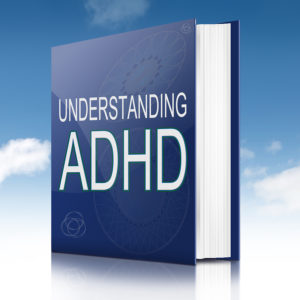
Your prefrontal cortex directs behavior, thought and feeling which are all associated with working memory. This fundamental cognitive function is what most “healthy” people take for granted, are what make up executive function.
This executive function and working memory give you the ability to:
- Regulate your attention
- Inhibit inappropriate behavior and thought
- Monitor your actions
- Plan and organize your future
If you can’t focus on the task at hand, blurt things out at inappropriate times, have little control over your emotions or actions, and can’t seem to stick to that careful set of goals you wrote down, you may be ADHD.
The Role of Norepinephrine and Dopamine in ADHD
Norepinephrine and dopamine are the primary neurotransmitters involved in ADHD because they play an essential role in attention and thinking.[i]
The “inattentive” type of ADHD is related to issues with the norepinephrine, and the “hyperactive and impulsive” type of ADHD is linked to dopamine dysfunction.
These two neurotransmitters work in concert to maintain alertness, increase focus, sustain thought, effort, and motivation. The only difference between the two is the presence of a hydroxyl group. And dopamine is the precursor to norepinephrine synthesis in your brain.[ii]
Much of what we read about ADHD focuses on dopamine’s function in your brain. But norepinephrine (NE) plays a critical role in activating your reaction to events. And how you respond to the event.[iii] NE is essential for collecting information coming in through your senses. And then modulating your brain’s response.
Any disruption in this NE system can result in ADHD, Post Traumatic Stress Disorder (PTSD), sleep disorders and more.[iv]
For example, NE working with postsynaptic α2-adrenoceptors (α2-AR) in your brain play an essential role in helping you focus and eliminate distractions when you’re paying attention to something.[v]
This is just one example of what goes wrong with ADHD brain function. My point in bringing this all up is not to overwhelm you with neuroscience.
But to make clear that simply suggesting too much or too little of a single neurotransmitter like dopamine cannot explain the complexity of ADHD.
So using a nootropic like L-Tyrosine to amp up dopamine in your brain is often not enough to take care of ADHD symptoms. Or using Adderall with someone who has a problem with alpha2-receptor binding with norepinephrine may not get much benefit.
This is the reason that experimenting with various stimulants and/or nootropics is often the only way to find a long-term solution to keeping ADHD under control. And why some respond better to a drug like Ritalin and not as well to Adderall. Or vice versa.[vi]
And recent research shows serotonin and acetylcholine are involved too. Mostly the “hyperactivity” part of ADHD which includes movement, inattention, and impulsivity.[vii]
Smart Drugs Used to Treat ADHD Symptoms
If you are truly and clinically ADHD or ADD, it is unlikely that optimizing your diet, getting plenty of sleep, using nootropics, and exercising regularly will get the symptoms of ADHD under control.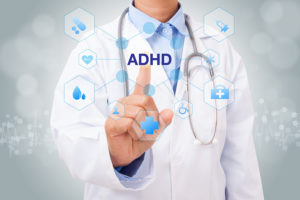
The most severe forms of ADHD often benefit from using prescription medication. Otherwise known as “smart drugs” in some circles, these meds are typically amphetamines or methylphenidate.
The amphetamine-class of ADHD prescription drugs includes Adderall (75% dextroamphetamine salts and 25% levoamphetamine salts), Dextroamphetamine, and Vyvanse (Lisdexamfetamine).
The methylphenidate-class of ADHD medications includes methylphenidate (Ritalin) and its variants like Concerta, and Focalin.
Adderall and Ritalin both work with dopamine and norepinephrine in your brain. But through different mechanisms of action.
Ritalin is a pure uptake inhibitor of dopamine and norepinephrine without any other presynaptic activity.[viii] Adderall on the other hand, has additional presynaptic activity, releasing dopamine and norepinephrine from presynaptic neurons.
The idea for the last 60 years or so, has been if we could boost dopamine and norepinephrine in the brain, ADHD symptoms would go away. As long as we’re taking the medication.
Why Prescription Attention Deficit Hyperactivity Disorder Meds Often Don’t Work
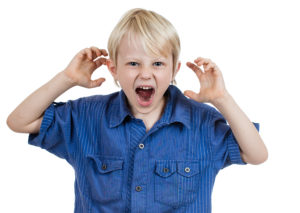 In an ideal world, taking one pill 2 or 3 times a day to treat ADHD would put your life back on track. And help you function like a ‘normal’ person.
In an ideal world, taking one pill 2 or 3 times a day to treat ADHD would put your life back on track. And help you function like a ‘normal’ person.
But real-world results often don’t work out as well as theory. For several reasons. For example, what if there’s not enough dopamine or norepinephrine in your brain in the first place? Then stimulants will not work as well as planned because they haven’t the neurotransmitters in place to work with.
You could also have problems with not enough or damaged neuroreceptors. Natural aging processes can slow blood flow or inhibit the production of neurotransmitters. A lack of acetylcholine could prevent your neurotransmitters from doing what they were designed to do.
This is where nootropics can help save the day in treating the symptoms of ADHD.
Optimizing Dopamine & Norepinephrine
 One of main culprits contributing to ADHD symptoms is a lack of dopamine (DA) and norepinephrine (NE) in your brain. Or your brain is not using the available DA and NE effectively.
One of main culprits contributing to ADHD symptoms is a lack of dopamine (DA) and norepinephrine (NE) in your brain. Or your brain is not using the available DA and NE effectively.
Stimulants like Adderall and Ritalin work to boost levels and use of these two critical neurotransmitters.
Production of dopamine and norepinephrine in your body and brain follows this metabolic pathway:
Phenylalanine → Tyrosine → L-DOPA → Dopamine → Norepinephrine
Dopamine is converted to norepinephrine by the enzyme dopamine β-monooxygenase, with O2 and ascorbic acid (Vitamin C) as cofactors.
Norepinephrine can be further converted into epinephrine by the enzyme phenylethanolamine N-methyltransferase with SAM-e as cofactor.
Nootropics to boost dopamine and norepinephrine include:
- L-Tyrosine – L-Tyrosine is the precursor to the synthesis of dopamine in your brain. L-Tyrosine enhances working memory, executive function, creative flow states, reduces stress, improves mood and is anti-anxiety.Suggested dosage of L-Tyrosine or NALT for ADHD is 350- 500 mg twice per day. I successfully stack 500 mg of NALT or L-Tyrosine 3-times per day. Once each time I dose with Ritalin, and a last dose mid-afternoon to prevent a stimulant crash later in the day.
- Mucuna Pruriens (L-Dopa) – Mucuna works as an antioxidant and heavy metal chelator, improves memory & cognition, reduces depression and boosts libido.L-Dopa is also the direct precursor to dopamine. Suggested dosage of Mucuna Pruriens is 250 – 500 mg per day. But if you’re just starting out with nootropics, I highly recommend using L-Tyrosine or NALT instead of Mucuna Pruriens. Because Mucuna can be more difficult to dose since it directly stimulates the production of dopamine. L-Tyrosine and NALT are more ‘forgiving’ when it comes to dosage.
- N-Acetyl L-Cysteine (NAC) – NAC is an amino acid that regulates the amount of glutamate and dopamine in your brain.NAC can be used to address the symptoms of ADHD. And may even help eliminate some of the negative side effects associated with prescription ADHD stimulants. Suggested dosage of NAC is 600 mg 3-times per day.
- Phosphatidylserine (PS) – PS can help improve alertness, attention, cognition, memory, recall and mood, and lower anxiety. All issues associated with ADHD.Phosphatidylserine is a phospholipid component of the membrane encasing every one of your brain cells. PS helps maintain the fluidity and permeability of brain cells. Improving the flow of dopamine and acetylcholine. Suggested dosage of PS is 100 mg 3-times per day.
- Pine Bark Extract – Pine Bark extract helps prevent decreases in dopamine and norepinephrine. And the glutathione (GSH) and GSH-disulphide reductase (GSSG-R) ratio. Neurotransmitter problems which contribute to hyperactivity in ADHD.Pine Bark extract also helps boost blood flow in the brain by increasing nitric oxide which helps dilate blood vessels. And it helps reduce oxidative stress, membrane damage, DNA damage, inflammation, and glycation.I’ve found one of the most potent forms of Pine Bark extract comes in both Mind Lab Pro® and Performance Lab® Mind.
A word of caution here in boosting the catecholamines dopamine and norepinephrine. Too much of either is not a good thing. In fact, excess levels of either will throw your neurotransmitter levels out of balance. And can cause anxiety, insomnia and panic attacks.
Taming Hyperactivity with Nootropic Supplements
The “H” in ADHD stands for hyperactivity. Boosting levels of dopamine and norepinephrine can help balance out hyperactivity. And help calm and focus your mind. But often simply boosting or balancing these neurotransmitters is not enough.
Recent studies show that serotonin and dopamine interaction also play a role in ADHD.[ix] Serotonin is involved in the uptake, synthesis and breakdown of dopamine in your brain. Problems with serotonin seem to contribute to behavior and impulse control.
Much more research needs to be done in this area of ADHD. But we can help control and balance serotonin with nootropics.
- 5-HTP – This amino acid is synthesized from the amino acid tryptophan. And 5-HTP is the immediate precursor to serotonin in your brain.5-HTP can help relieve anxiety and depression, fibromyalgia, insomnia, migraines and likely the hyperactivity, depression and anxiety associated with ADHD. Suggested dosage of 5-HTP is 50 mg up to 3-times per day. Please see my dosage notes and warnings before you try supplementing with 5-HTP.
- Ginseng – Ginseng helps calm anxiety, and boost attention, concentration and memory. Ginseng provides neuro-protective effects on the dopaminergic-pathway which can help with ADHD. And ginseng is a serotonin and norepinephrine reuptake inhibitor (SNRI).Suggested dosage of Ginseng is 100 – 400 mg per day.
- L-Theanine – L-Theanine commonly found in green tea helps boost alpha and theta brain waves, is anti-anxiety, boosts cognition and memory and reduces insomnia.L-Theanine also helps boost GABA, serotonin and dopamine levels in your brain. Suggested dosage of L-Theanine is 150 mg 2 – 3-times per day.
- Rhodiola Rosea – Rhodiola Rosea helps improve alertness, energy, memory and mood, is anti-anxiety and antidepressant, reduces fatigue and boosts memory and concentration.Rhodiola influences serotonin and norepinephrine levels in your brain. Suggested dosage of Rhodiola Rosea extract is 150 – 200 mg per day.
- Saffron – Saffron acts as a dopamine and norepinephrine reuptake inhibitor. Similar to how Ritalin works. A randomized double-blind study was conducted with 54 children 6-17 years old who were given 20 – 30 mg methylphenidate or 20 – 30 mg Saffron per day for 6 weeks. At the end of the study researchers concluded, “Short-term therapy with a saffron capsule showed the same efficacy compared with methylphenidate.”Suggested dosage of Saffron is 30 mg per day.
- Vitamin B6 (Pyridoxine) – Vitamin B6 helps your brain make serotonin, norepinephrine and melatonin. Suggested dosage of B6 is up to 100 mg per day.
- Vitamin B9 (Folate) – Folate (NOT folic acid) as a nootropic helps your brain make dopamine, epinephrine, norepinephrine and serotonin. Suggested dosage of Folate is 400 mcg per day.
- Vitamin B12 (methylcobalamin) – is a cofactor in the synthesis of neurotransmitters acetylcholine, dopamine, GABA, norepinephrine, and serotonin. Suggest dosage of B12 is 100 mcg per day.
B-Vitamins are Critical in Controlling ADHD
Take note that several of the B-Vitamin group are involved in the production of the neurotransmitters involved in ADHD. I recommend adding a good B-Vitamin Complex that include methylfolate (not folic acid) and methylcobalamin (not cyanocobalamin) to your stack. Both in a pure nootropic stack as well as when using any of the ADHD prescription stimulants.
But it’s not only the B-Vitamins that are required for a healthy, fully functioning brain. We also need each of the 13 vitamins and 13 minerals needed for everything from blood flow, neurotransmitter synthesis and release, brain signaling, and neuroprotection.
I’ve found the easiest way to make sure my ADD brain gets all the vitamins and minerals it needs every day is to also use a multivitamin/mineral supplement.
The best I’ve found so far is the multivitamin called Performance Lab® NutriGenesis Multi. It’s better than the “raw-food” multi I was using for years. And makes a difference I can actually feel.
But please note that this multi is in addition to a B-Vitamin Complex because the ADHD brain needs more of these critical nutrients than what is normally in any good multivitamin.
The Role of Acetylcholine in ADHD
Researchers at Vanderbilt University Medical Center discovered that there are three types of ADHD.
We’ve already covered the “inattentive” type that is related to issues with the norepinephrine transporter gene. And the link to the dopamine transporter gene in the “hyperactive and impulsive” type.
But the research team now report that a variation in the choline transporter gene is associated with a “combined” type of ADHD. Symptoms include both inattention and hyperactivity/impulsivity.
Choline is required to synthesize acetylcholine (ACh) which is needed for memory, motor-control, focus, learning, concentration, and cognition.
If you have the “combined” type of ADHD it’s likely due to a mutation in this choline transporter gene variation.
Nootropics to boost acetylcholine include:
- ALCAR (Acetyl-L-Carnitine) – ALCAR donates a methyl group in the presence of Coenzyme-A for the synthesis of acetylcholine. And it’s also a shuttle transport for fatty acids through brain cell membranes. It shuttles fatty acids into mitochondria for ATP synthesis, and shuttles toxic byproducts out.
Research from the Linus Pauling Institute shows ALCAR will restore mitochondrial function, replenish age-related changes to mitochondrial structure, and helps replenish acetylcholine levels to your brain and body.
And other studies show that ALCAR stimulates nerve growth factor. Helping support survival and growth of neurons. Which is particularly important for the ADHD brain and especially when using prescription stimulants that may be tough on neurons.
- Alpha Lipoic Acid (R-LA) – Alpha Lipoic Acid increases acetylcholine production by activation of choline acetyltransferase and increases glucose uptake. This process supplies more Acetyl-CoA for the production of acetylcholine.
Alpha Lipoic Acid enhances insulin-stimulated glucose transport and metabolism for better brain cell performance. And R-Lipoic Acid provides strong antioxidant support because it helps regenerate and recycle existing antioxidants in your brain including Vitamins C & E, glutathione, and CoQ10.
I’ve since switched the ALCAR supplement in my ADD stack to Performance Lab® Energy because this pre-formulated energy stack contains my preferred dose of ALCAR. But note that I also take another 500 mg of ALCAR with L-Tyrosine late afternoon to prevent a stimulant crash.
Performance Lab® Energy also contains Alpha Lipoic Acid and ALCAR which helps my ADD brain produce acetylcholine.
- CDP-Choline (Citicoline) – Citicoline helps synthesize phosphatidylcholine (PC), a major phospholipid found in brain cell membranes. And provides choline for the synthesis of acetylcholine while providing antioxidant activity.
The CDP-Choline (Citicoline) in my ADD stack is supplied by Mind Lab Pro® which is the base of my nootropic stack.
But a suitable alternative to MLP is Performance Lab® Mind which contains the branded form of citicoline called Cognizin®.
Performance Lab® Mind and Mind Lab Pro® also contain L-Tyrosine, Phosphatidylserine (PS), and Maritime Pine Bark extract.
Repairing Neuroreceptors Needed to Control ADHD
One of the issues with neurotransmitters and ADHD are damaged or non-existent receptors. Dopamine, norepinephrine and serotonin have less receptors to bind to for cognition and mood control.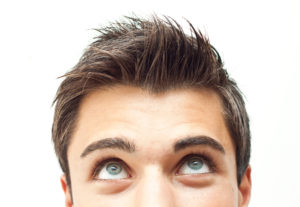
Once again, nootropics come to the rescue in helping control ADHD. You can add one of these nootropics to your stack to help boost neuron and receptor health.
- Ashwagandha – This adaptogen, Ashwagandha helps reduce anxiety and depression. And helps reconstruct axons, dendrites and synapses involved in neurotransmitter signaling in your brain.Suggested dosage of Ashwagandha extract is 250 – 500 mg per day.
- Bacopa Monnieri – Bacopa helps boost memory and cognition, improves mood, and reduces stress. This adaptogen affects brain levels of acetylcholine needed for neurotransmitter signaling.And the two active components of Bacopa Monnieri called bacosides A and B not only improves signaling of electrical impulses between neurons in your brain. Bacosides also help rebuild damaged neurons. Suggested dosage of Bacopa is up to 450 mg per day.
- Lion’s Mane – Lion’s Mane Mushroom is known for stimulating Nerve Growth Factor, improving cognition and memory, and relieving depression.Lion’s Mane stimulates the repair and creation of neurons in your brain. Neurons needed for dopamine and norepinephrine to control ADHD. Suggested dosage of Lion’s Mane Mushroom starts at 500 mg per day. Note: that there’s an effective 500 mg dose of Lion’s Mane full-spectrum fruiting body in each dose of Mind Lab Pro®
- Noopept – Noopept helps boost cognition, memory, learning, perception, logical thinking and mood. Noopept increases Nerve Growth Factor, and Brain-Derived Neurotrophic Factor (BDNF) critical for neuroplasticity and Long-Term Potentiation critical for long-term memory.Noopept also prevents the release of excess glutamate in your brain. Providing potent neuroprotection for neurons and reducing damage. Suggested dosage of Noopept is 10 – 30 mg per day.
Please note that I haven’t linked through to supporting clinical studies for each of the nootropics I listed above. But you can click through to my full review of each nootropic for extensive research supporting each supplement.
Nootropics for Kids
ADHD and ADD is most often diagnosed in children. The latest statistics (2011) from the CDC in the USA shows about 11% of children 4 – 17 years of age (6.4 million) have been diagnosed ADHD.[x] And that’s just for the USA.
Although ADHD is usually first diagnosed in children, it often lasts into adulthood. I sometime wonder how my life would have been different if I had been declared ADD when I was a kid.
But it wasn’t until the late 1960’s that the American Psychiatric Association formally recognized ADHD as a mental health disorder. I wasn’t declared Adult ADD until much later.
The thing is many parents are wary about putting their children on powerful, prescription ADHD meds. Kids’ brains continue to develop until your early 20’s. So is it a problem messing with brain chemistry at such a young age? Only time will tell and if the benefits outweigh any potential risk.
Hence the reason why parents are looking for ‘natural’ alternatives like nootropics to treat ADHD in children. But are nootropic supplements any safer than prescription stimulants?
Common sense tells me that using L-Tyrosine could be safer than Ritalin for boosting dopamine. And Rhodiola Rosea could be safer than stimulants or antidepressants for taming hyperactivity.
But many children with ADHD, natural supplements may not be enough. I’m not a doctor, and don’t even play one on TV. I’m an ordinary biohacker who has learned as much as I can to help myself. And fix my own cognitive performance issues. Including Adult ADD.
So I highly recommend you find and work with an open-minded psychiatrist with your child. You may be pleasantly surprised to find you may be able to reduce or eliminate prescription ADHD meds altogether to enhance cognitive functions. And maybe not. But the long-term health of your child could be worth the time investment to find out.
In Summary
I’ve been wanting to write this post since I started Nootropics Expert®. If you are ADHD or ADD, I hope you found this useful. And I’d appreciate your feedback, and share your experience with treating ADHD with nootropics in the comments section of this post below.
Please share this post with anyone you think would benefit. Including discussions about nootropics for ADHD on reddit or Longecity.
One final note. Neurotransmitter balance is key to taming ADHD. I strongly caution you to take it slow if you’re just starting out with nootropics. Carefully read each of the extended articles in the List of Nootropics you are considering trying.
You need to be careful about side effects, prescription drug interactions, dosages and how your body reacts to each supplement to ensure healthy brain function.
But I’m confident that with careful planning and a long-term commitment, your cognitive enhancement will be just as successful as I have been in living and thriving with my Adult ADD.


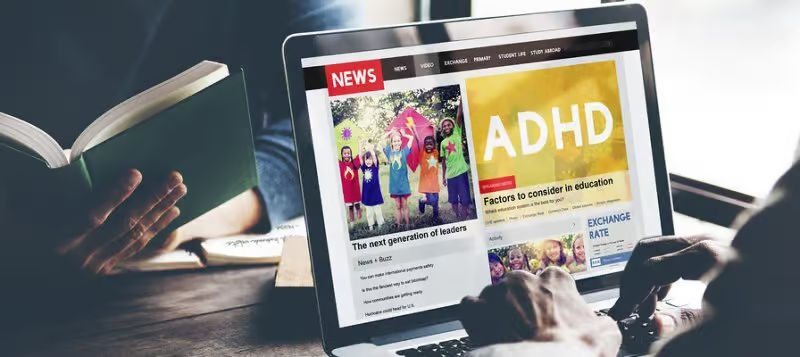





Join The Discussion - 861 comments
tim
April 21, 2019
Dear David,
I’m working on something that has a deadline the 7th of june. Regardless of the deadline I would definitely like to give this protocol a go. Next to ritalin. But the 7the I’m leaving on vacation for three weeks. At that time I won’t be needing my meds, nor the protocol. Can I just start anyway, take a break, and start again when I’m getting back to work? Or would that be a waste of money? Would the effects be felt the same day/week or does it take two to three months? In with case I’m maybe better off waiting to start the protocol.
Any thoughts would be greatly appreciated.
regards!!
David Tomen
April 22, 2019
Tim, my experience is the success of this stack comes from consistent, daily, long-term use. Think of it this way…
The ADD or ADHD is essentially ‘brain damage’. And you need to repair that damage. Once repaired, you need to maintain it.
If I knew I had a June 7 deadline hanging over me and the success of that day depended on a highly functioning brain, I’d get started now.
tim
April 26, 2019
Thanks for the reply!
The only thing I’m a little puzzled about is what to take when. I Don’t think that’s covered in the article. Or maybe I missed it (but I’ve read it a couple of times). My doc thinks it’s all bs. He actually advised against it. He likes to keep things simple. That is: only the ritalin. I understand his point of view. He feels with so many compounds we don’t know what we’re doing anymore. On the other hand, it’s not like he read up on it. At the moment I’m taking ashwagandha. He did a quick google search and came to the conclusion it might cause anxiety instead of decreasing it. Because of it’s effects on the thyroid. Examine.com does mention those effects. So I’m a little puzzled as what to do. Listen to your body, I know:). But going there has been quite a financial effort. And he certainly has my best interest at heart. So I’m torn between my instincts and his advise.
David Tomen
April 27, 2019
Tim, the protocol I outlined in this post is to naturally support the ADD and ADHD brain. Ritalin is a dopamine reuptake inhibitor. But if your brain doesn’t have enough dopamine there is nothing to inhibit! And you don’t get the full benefit of Ritalin.
I suggest using L-Tyrosine or NALT for each time you dose Ritalin to provide dopamine, ALCAR to boost acetylcholine and improve brain cell signalling, DHA as the fat needed for healthy brain cells, Vinpocetine for better brain blood flow, and a quality multivitamin so your brain has the vitamin and minerals it needs for neurotransmitter synthesis, gene expression, myelin synthesis, etc.
The majority of doctors will not approve of this kind of regimen because they do not understand it. Keep in mind that for the last 100 years medical schools have been supported by the major pharmaceutical companies. Doctors are trained for a ‘one pill’ solution for every disease. But get zero training on what builds and maintains a healthy brain and body in the first place.
So to answer your question; if you use Ritalin twice per day the dose this stack morning and noon. Then use one more stack late afternoon to prevent a stimulant crash.
If you need more help please book a consultation with me and I’ll walk you through it.
ADHD MOM
March 13, 2019
Do you take anything specifically in the late afternoon to prevent the crash and irritability? I am so tired between 6-8 pm with no energy/motivation and I take a short nap to take the edge off.i take 15 mg of adderall 2x a day. I was thinking about adding B6 and L-Carnitine in the afternoon. Thanks
David Tomen
March 14, 2019
Around 4 PM I take 800 mg NALT, 800 mg ALCAR and I personally find another 300 mg Alpha GPC works for me. Along with a tablespoon of unrefined coconut oil. That stack keeps dopamine and acetylcholine levels up so I don’t crash.
Marc
March 9, 2019
Hello David,
Let me first say that I love what you do. You’re a level-headed fellow and I think you’re helping a lot of people. I’m currently reading the above post on ADHD. I’m 46 (soon to be 47) and well, I’ll spare you my story because it’s not pretty. Let’s just say that a psychiatrist first diagnosed with ADHD some 10 years ago. However, the diagnosis was then removed by the same practitioner and added at a later time by a neuropsychologist and then removed again by another psychiatrist. As you can see, I’ve been caught in the middle of health professional disagreements. However, I do think that I’ve had ADHD, because for someone my age, I’m clearly not where I should be in life. What I’m driving at here, is that I strongly think that ADHD has ruined my life or just short of doing so.
I notice that you’ve been on methylphenidate. My question to you would be : have you experienced any moderate to severe side-effects from it ? as in : cardiovascular related issues, like ectopic beats (aka extrasystole), FA or other type of heart arrhythmias ? I’m familiar with these topics, as I’m a term away from completing a RN course.
I’m asking, as I’m considering methylphenidate over dextro or other amphetamine salts like Adderral XR. FWIW, I did try Adderall XR once for a week’s time. While on it, I was calmer than usual, yet noticeably more obsessed over a number of things. My wife found me to be quite annoying while I was on it. Plus, by the end of the I’d become very aggressive – so aggressive that I thought I might get in trouble with the law. So, that was the deal breaker for me as far as Adderall was concerned.
From what I’ve read, Methylphenidate is somewhat safer than amphetamines. Though, Vyvanse (dextro) is interesting because the come on and off are smooth, because of the lysine based delivery.
Thank you very much David.
Marc
David Tomen
March 10, 2019
Marc, methylphenidate has a longer track record than any of the other stimulants. And the research shows it is relatively ‘safer’ than any of the others. I do not experience side effects from it. I did try Adderall once for 6 months and switched back because it did not agree with me.
Each of us is wired differently and our response to each of these meds may be different.
While your team of docs is trying to make up their minds you should know that I used the above stack WITHOUT Ritalin for one year. And it worked great.
Steve
March 4, 2019
Thanks Dave that’s good to hear as I’ve really been suffering. I appreciate all your help just wish I saw your site sooner. I will keep you updated. Steve.
Steve
February 28, 2019
I prey this combination is going to work for me but feel there is not enough time left. I was diagnosed with adhd and bi polar in may last year after 5 years of severe suicidal depression. I am 55 and always knew something was wrong. To top it off the day I was diagnosed my dear wife my rock in life had a mri scan for bad back and was told to immediately go to AE where they diagnosed advanced breast cancer to her spine and gave her 2y to live. At present she has now lost her ability to walk and is bed ridden at home which is not good as I’m here full time cater who cannot care care for himself. I need to get my head together very quickly as we intended to beat this cancer with natural approach but time is moving and I just get so frustrated as I am so bloody negative and cannot focus, and what really amazes me is that I have motivation which is awful considering severity of her illness. I use to be very clever and a quick learner of anything I put my mind to even though I never went to school, I self taught myself everything I know.
I am only now prescribed elvanse/vyanse 70mg (UK highest dose) but these only work for 3h max so anything that can help is a bonus as Drs will not up the dose. Really would appreciate any help you can give as I am so desperate as my world is crumbling around me. Kind regards Steve
David Tomen
February 28, 2019
Hi Steve, it’s not too late because with the right nootropic stack and dedication on your part things can improve relatively quickly. Fortunately, much of the trial and error has been done for you. And is reflected in this post on ADHD.
The protocol outline in this post was designed to support the use of prescription stimulants. And if dosed correctly and at the recommended timing you’ll find that you’ll get extended use of Vyvanse.
For longterm brain health I also suggest you study this post for some ideas you can use in addition to what is outlined above in this post: https://nootropicsexpert.com/best-nootropics-for-the-aging-brain/
Kat
February 25, 2019
I have ADD along with social anxiety. I take Vyvanse and b vitamins. I don’t take many other medications or supplements. I have a bubbly personality when I’m not lethargic. Anti-depressants make me feel like crap. But I have found in social settings that alcohol relaxes me (without making me sleepy), and I am much more socialable and talkative. Is there a nootropic that would give me the same feeling with out turning to alcohol and the alcohol side effects?
David Tomen
February 25, 2019
Kat, what you describe is typical of someone who is truly ADD. The supplements described in this post including dosages and timing of dosages should help. Sounds like your brain needs more dopamine and acetylcholine.
Robert
February 23, 2019
By the way David, My modafinil is not provigil it is generic modafinil (Modalert).
Robert
February 23, 2019
David, I use this stack at the moment every week with 2 days off on weekends.
Sulbutiamine 400mg 2x daily
ALCAR 500mg 2x daily
DHA 1000 MG 70% 1 daily
Source Of Life Men Whole food Multi 2x Daily
Life Ext B complex 2x daily
vinpocetine 10mg 3x daily
Aniracetam 750mg 2x daily
NALT 800mg 2x daily
MLB 2x daily
Coconut oil 15ml 3x daily
my first dose makes me feel alert and calm, my second dose after 4 hours from the first dose this time I feel really weird and easily get tired Idk why what I have in mind is the multi vitamins that I have already has b complex on its own here is the ingredient sample
https://images-na.ssl-images-amazon.com/images/I/81osg-Wk80L._SL1500_.jpg
Is it an overdose of b complex? what might be causing it?
Or this stack is supposed to be dosed with a stimulant and I should reduce my dose for each ingredient?
If incase this stack is ok with you david I will stack a stimulant with it “modafinil” what do you think?
David Tomen
February 24, 2019
Robert, if you are using Aniracetam you really should add a choline supplement to this stack. Something like Alpha GPC or CDP-Choline. See if that helps and report back please.
Robert
February 24, 2019
David, I use the Mind lab pro 250 mg Citicoline (Cognizin)
everytime I dose aniracetam in this stack. If not enough I should definitely gonna buy A-GPC or CDP Choline Source or get it from eggs if in case how much choline a day should I need for this stack?
David Tomen
February 24, 2019
Robert, it’s unlikely that you are getting enough from just the Citicoline in MLP if you are using Aniracetam. And there is no reliable way to tell how much choline you are getting from eggs.
Aniracetam is a powerful nootropic and needs the support of an acetylcholine precursor. Depending on your individual system likely considerably more than what you’d get from MLP and/or eggs. Experiment with additional CDP-Choline or Alpha GPC and see how it works for you.
Robert
February 24, 2019
Thanks David, I’ll Let you know within the coming weeks.